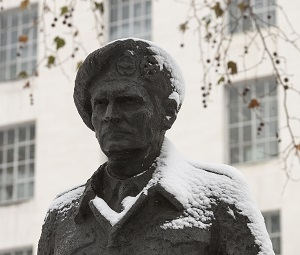
Last week the four new Chiefs of the Armed Forces were announced. In the first half of next year the most senior positions in the Army, Royal Air Force, Royal Navy, and Joint Forces Command will all change hands.
The four new Chiefs will be:
Vice Admiral Timothy Fraser CB is to be promoted Admiral and appointed Vice Chief of the Defence Staff, in succession to General Gordon Messenger;
Vice Admiral Tony Radakin CB is to be promoted Admiral and appointed First Sea Lord and Chief of Naval Staff, in succession to Admiral Sir Philip Jones;
Air Marshal Michael Wigston CBE is to be promoted Air Chief Marshal and appointed as Chief of the Air Staff, in succession to Air Chief Marshal Sir Steven Hillier;
Lieutenant General Patrick Sanders CBE, DSO is to be promoted General and appointed Commander Joint Forces Command, in succession to General Sir Christopher Deverell.
These scheduled changes come at a time of great uncertainty for the Ministry of Defence (MoD). The new Chiefs will be faced with the challenges of the protracted Modernising Defence Programme (MDP); continuing to find efficiencies throughout their command whilst ensuring certain capabilities are protected, and the effectiveness of the overall Force continues to improve.
As part of the MDP the remit and financial responsibilities of the individual Armed Forces are under review. Since being given more financial freedom and authority in the Levene Review of 2011 the Armed Forces budgets have regularly overspent and become a focal point for further reform. As in previous years; a major challenge for the Chiefs will be to bring these budgets into line and to effectively oversee a programme of transformation that brings efficiencies and greater effectiveness.
These illustrious positions carry much influence within senior MoD echelons and can set the tone for their Service. Although not directly engaged with the process these positions can directly influence the requirements setting culture. There is the opportunity to move away from complex over-specification and towards an approach that favours international interoperability and requirement setting that more adequately balances cost and ‘exquisite capability’. These issues greatly affect industry and can be directly addressed by leadership from the top.
The process of requirement setting and the resulting procurement are the purview of others within the MoD; however the ‘Defence Customer’ and the responsibility of deciding what is needed remains rooted in the Front Line Commands. ADS continues to work with the MoD in order to better support the Department’s vision of becoming a more ‘intelligent customer’. Industry welcomes the new Chiefs to their respective roles and we look forward to working with them to better equip and support the men and women working under them.





